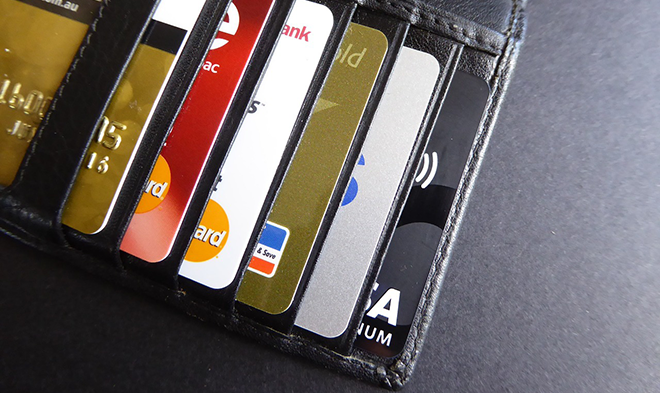Why Cancelling Your Credit Cards May Result In A Lower Credit Score
 You know the old cliche... when you’re ready to get out from under heavy debt and boost your credit score, it’s time to cut up those credit cards, right? Well, not necessarily. While paying down your debts and being responsible with credit is always a great way to tackle poor credit, cancelling your credit cards may not be. Here are a couple things you need to consider before taking a pair of scissors to your Mastercard:
You know the old cliche... when you’re ready to get out from under heavy debt and boost your credit score, it’s time to cut up those credit cards, right? Well, not necessarily. While paying down your debts and being responsible with credit is always a great way to tackle poor credit, cancelling your credit cards may not be. Here are a couple things you need to consider before taking a pair of scissors to your Mastercard:
Your Credit Utilization
Taking one card out of the mix will increase your usage percentage. Let’s say you have 3 credit cards. Two have a limit of $5,000 each and one has a limit of $10,000. In total, you have $20,000 of credit at your disposal. Now, let’s say you have, across all three cards, a total of $5,400 in balances. You have used 27% of your credit. This is your utilization percentage. Now, let’s say you want to transfer your balance from one of your $5k cards to your $10k card, and then cancel the $5k card. Now, you have $15,000 in total credit, and still have $5400 total balance across both of your remaining cards. Your usage percentage has risen to 36%. While this is still a decent usage percentage, you will likely see a few points disappear from your credit score, because of your higher usage percentage. This can be easily fixed by bringing your usage back down. If, however, you’re good with credit and trust yourself not to overspend, you might consider keeping the third card just for the credit score boost, especially if it has no annual fee.
How Long You've Held Your Credit Accounts
You may have changed the average length of time you’ve held the same credit account. Usually, when people cancel just one credit card out of a few, it’s the oldest card. This is because many people get less rewarding, more costly cards to start out with and as they build up their credit, they become eligible for cards with better interest rates, better rewards, and lower or no annual fees. So, the first card is the one to cut loose. The problem is, that’s the card you’ve had the longest and that length of time is adding to your average length of credit. If it’s the oldest credit you have and your other cards are fairly new, you might consider hanging onto it and just not using it, so that it doesn’t appear that all of your credit is relatively new.
If you’ve got decent enough credit, the drop that cancelling your credit cards can cause will be easily recovered. Work on lowering that credit usage percentage and paying all your bills on time. If, however, your credit is already suffering and you’re working hard on trying to bring it up, perhaps wait before you cancel the card in question. Unless it has an annual fee you can no longer afford, just hang onto it and don't use it.
Did you know that cancelling your credit cards can lower your credit score? Let us know in the comments!





Leave a Reply